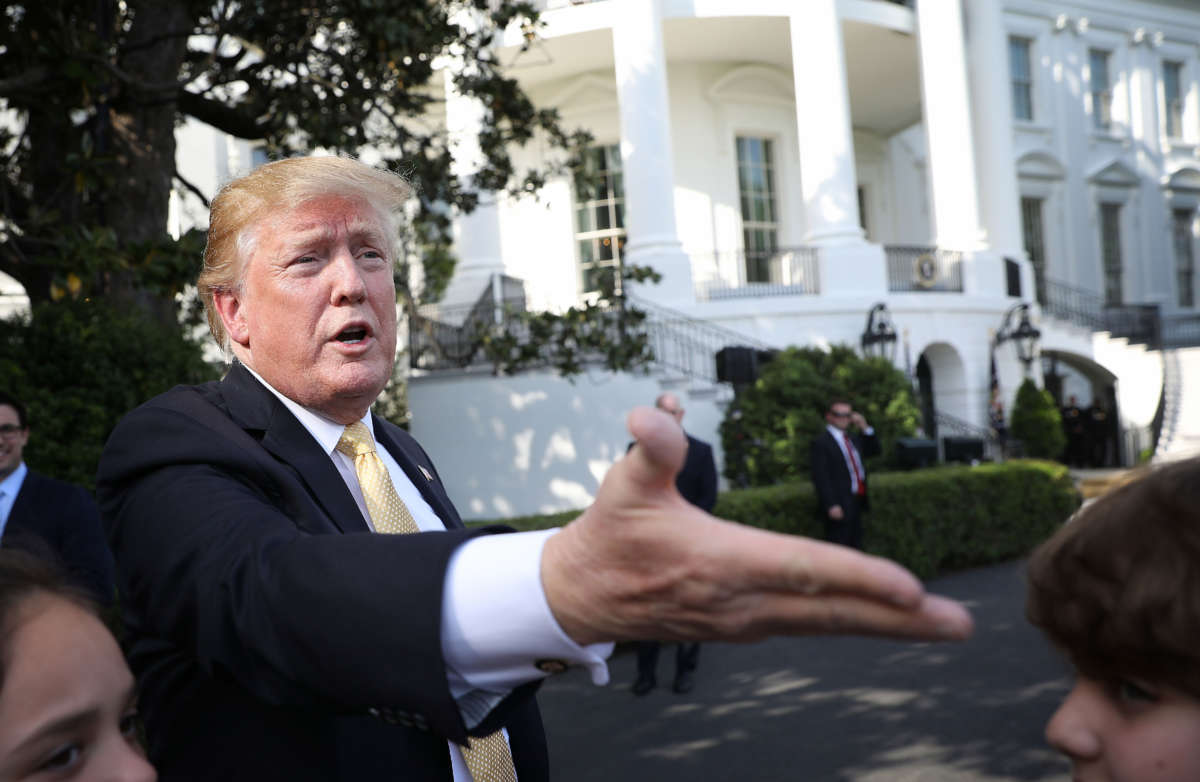Honest, paywall-free news is rare. Please support our boldly independent journalism with a donation of any size.
Former Vice President Joe Biden announced on Wednesday that he would not be going to Milwaukee, Wisconsin, later this month to deliver his acceptance speech for the Democratic Party’s nomination for president. Before the coronavirus pandemic reached the United States earlier this year, it was assumed that the Democratic nominee would accept the nomination in person as was customary.
Instead, Biden will be delivering his acceptance speech from his home state of Delaware, and likely not in the presence of a crowd given the concerns around the rise in COVID-19 infections in the U.S. Other speakers slated to speak at the Democratic National Convention will also not be making the trip to Milwaukee.
Meanwhile, President Donald Trump, who has had his own set of troubles nailing down a place to accept the nomination for president on the Republican ticket, made a controversial statement Wednesday morning on “Fox & Friends” that he may just use the White House itself to give his acceptance speech.
“It’s easy and I think it’s a beautiful setting,” Trump explained. “And we are thinking about that. It’s certainly one of the alternatives. It’s the easiest alternative. I think it’s a beautiful alternative.”
The idea of using the White House, a government-funded place of official business for the chief executive, for a political purpose would be highly controversial, if not illegal. Under the Hatch Act, no federal employee may use government resources to promote political causes or purposes.
While Trump isn’t technically subject to the Hatch Act, others at the White House who work under him are, and could be found in violation of it if they’re seen assisting him in any way with the speech.
Although in the same interview Trump also said he could “go someplace else” if people had qualms about him using the executive residence for his political speech, it nevertheless set off a number of criticisms from lawmakers on both sides of the aisle shortly after he made the suggestion. Speaker of the House Nancy Pelosi (D-California), for example, said “it’s very wrong” for Trump to use the White House in such a way.
“For the President of the United States to degrade once again the White House as he has done over and over again by saying he’s going to completely politicize it, is something that should be rejected right out of hand,” Pelosi explained.
A number of Republicans in Congress were also averse to using the White House for Trump’s campaign speech, including John Thune, a high-ranking Republican senator from South Dakota.
“Is that even legal?” Thune asked out loud when confronted with the question.
“I assume that’s not something that you could do,” he added. “I assume there’s some Hatch Act issues or something … I think anything to do with federal property would seem to me to be problematic.”
Richard Painter, who served as White House ethics lawyer for former President George W. Bush, agreed that Trump would be making things incredibly difficult for those who are subject to the law on the matter.
“He may not be violating the Hatch Act, but he is ordering other people to. At a certain point you are using White House resources, and that is a violation of the Hatch Act,” Painter said.
Kedric Payne, the senior director of ethics at the Campaign Legal Center, agreed.
“Government employees cannot wear or display campaign material at the White House,” Payne told The Washington Post. “The RNC would have a difficult time arguing that they can reimburse for the expenses, because how do you calculate such things as the fair market value of the White House lawn?”
The time to figure out a venue to accept the nomination is winding down, but there are still a few weeks left to make a decision. Trump is scheduled to accept his party’s nomination on August 27. Biden will accept the Democratic Party’s nomination just one week earlier, on August 20.
Media that fights fascism
Truthout is funded almost entirely by readers — that’s why we can speak truth to power and cut against the mainstream narrative. But independent journalists at Truthout face mounting political repression under Trump.
We rely on your support to survive McCarthyist censorship. Please make a tax-deductible one-time or monthly donation.
